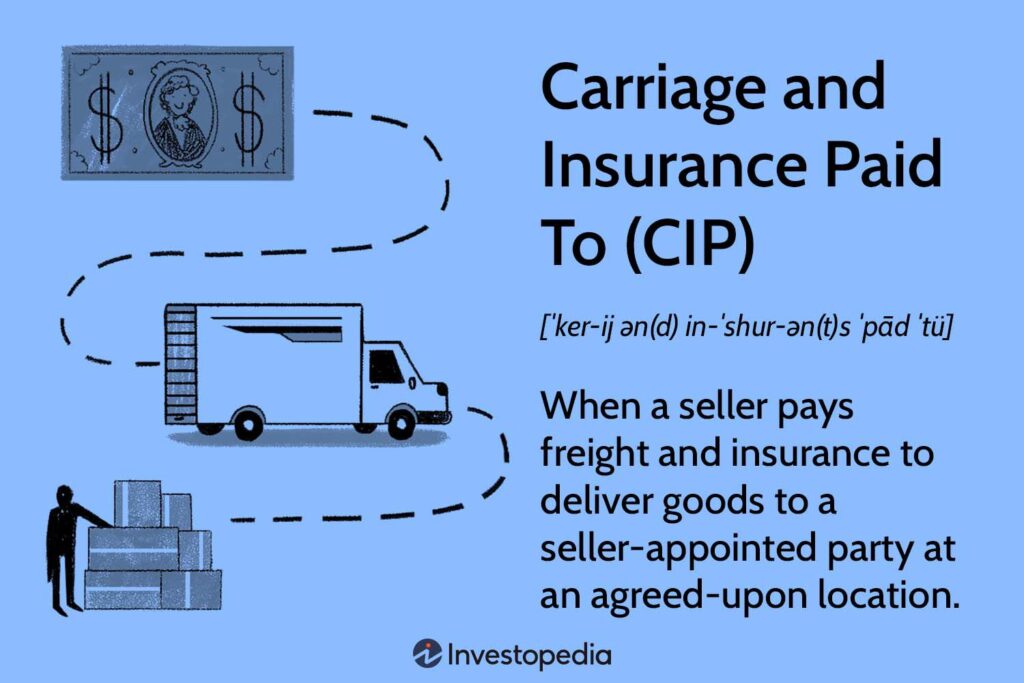Understanding Carriage and Insurance Paid to (CIP)
Carriage and Insurance Paid to (CIP) is an international trade term in which the seller is responsible for covering the freight and insurance expenses associated with moving goods from their facility to a designated location chosen by the buyer. The liability for any potential loss or damage to the goods transitions from the seller to the buyer when the goods are handed over to the carrier or representative appointed by the buyer.
CIP is similar to, yet distinct from, Cost, Insurance, and Freight (CIF), which is typically used in maritime and commodity trades. Under the terms of CIP, the seller is required to insure the goods in transit for 110% of their contract value. If the buyer needs additional insurance coverage, they must arrange and pay for it independently.
CIP and CIF are among the set of Incoterms—standardized international trade terms—and were established by the International Chamber of Commerce (ICC).
Key Points to Remember
How CIP Functions
CIP is a well-established practice in international trade that allows the seller to pay for the costs involved in delivering items to a specified destination. For instance, if the agreement specifies CIP to New York, then the seller is responsible for the freight and insurance fees to transport the goods to New York. Similar to Carriage Paid To (CPT), the freight charges under CIP can apply to any mode of transportation, including road, rail, sea, air, and multimodal options.
For example, if LG in South Korea plans to send tablet computers to Best Buy in the U.S., LG will cover all shipping expenses and basic insurance to deliver the products to a carrier or representative chosen by Best Buy at an agreed destination in the U.S. Once the shipment reaches Best Buy’s carrier or representative, LG’s obligation is fulfilled, and the risk for the shipment is transferred to Best Buy.
Extra Coverage Options Under CIP
Since the seller is only required to obtain the minimum insurance needed for transporting the shipment to the destination, buyers might want to consider securing additional coverage to protect against all potential risks. Neglecting to do so could lead to significant losses if the shipment is damaged or lost due to unforeseen circumstances not covered by the seller’s basic insurance.
Conclusion
“Carriage and Insurance Paid to (CIP)” indicates that the seller is responsible for the freight and insurance when transporting goods to the buyer’s designated representative at a mutually agreed location. The seller must provide insurance coverage amounting to 110% of the contract value. CIP is an internationally recognized Incoterm, established by the International Chamber of Commerce (ICC).


